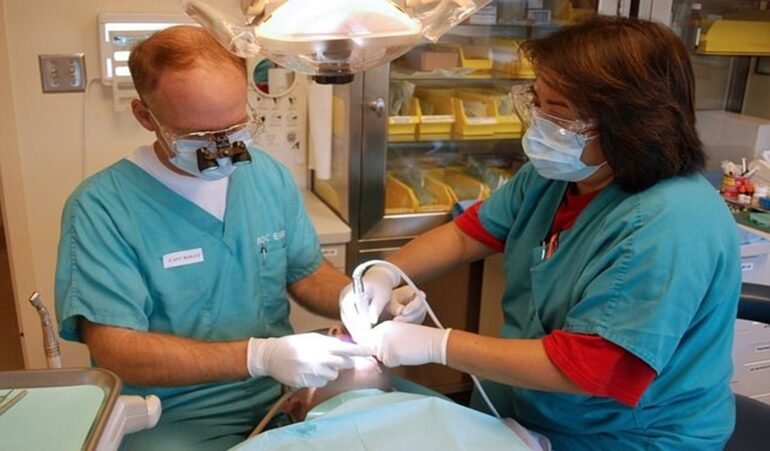Dental implants are growing in popularity. People want to get dental implants because they find it appealing to be able to grow the necessary bone before the implant is put in, because dental implants tend to last longer than other types of tooth replacement, and also because there is no need for painful gum surgery before the implant itself can be placed.
People think that once they get their dental implants done from dentist in Blackburn, there isn’t anything else they need to do other than brush their teeth like usual. However, even though brushing your teeth should always be done diligently (and using floss), taking care of your dental implants also requires special attention.
Some people who have had dental implants complain about having bad breath or that food has started getting caught in their teeth and on the dental implants themselves. This might be because they aren’t taking good enough care of their implants, or it can even be a sign of something wrong with them that needs to be looked at by a professional dentist.
The following are tips to help you take care of your dental implants:
1) Check-ups should happen often enough for you to monitor the implant’s status. These check-ups allow the dentist or prosthodontist to examine the implant and ensure everything is going well. Special attention must be given to areas where the implant meets other teeth and gum tissue around it so that any growths can be diagnosed appropriately before they become unmanageable. The prosthodontist usually wants to see the patient every three months for an examination and check-up.
2) You can use special toothpaste when you brush to help take care of your implants in specific ways, but make sure it is safe for implants.
3) Flossing should still be done regularly to take care of the implant itself and ensure food particles are removed from around it. However, when flossing, make sure you do not allow the floss to cut into the gum tissue near the implant because this will make it more susceptible to infection if nicked or cut during flossing. Dental tape is much safer than regular string dental floss when used around dental implants.
4) When eating, constantly chew on the other side of your mouth to not apply too much pressure to anyone’s implant. Also, make sure to brush your tongue after every meal to ensure no food particles are allowed to remain on it.
5) If you have ever had a crown placed over an implant for cosmetic purposes, remember that this is only a temporary solution and will eventually need to be replaced or removed for dental implants themselves can take place.
6) Consult with your dentist if any pain develops around the area of the implant itself because this could mean there is something wrong with it that needs further examination. Any discomfort should always be checked out by a professional immediately.
7) Even though regular flossing might not be safe, using floss threaders can help you get the floss up into areas near implants that might be too high for string dental floss.
8) If your dentist tells you to use some water irrigator, make sure it is an approved device for use around dental implants.
Studies have shown that patients who grind their teeth while they sleep are more likely to damage their dental implants during the night. This is why it is best to wear a nightguard if you tend to grind your teeth while sleeping. Also, your diet should consist of healthy foods that don’t contain lots of sugars or leftover particles that can become trapped around your implant or between your teeth and gums.



